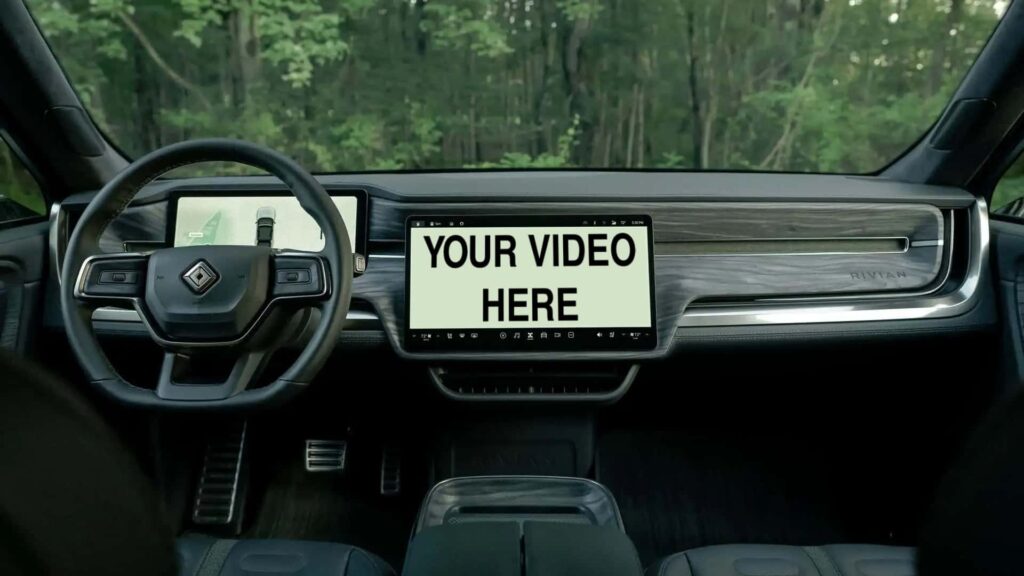The Rivian R1T pickup and R1S SUV are some of the best $70,000+ EVs you can get right now, but they’re not perfect. They have a lot of bells and whistles, but even three years after the R1T went into production, Rivian hasn’t figured out a way to get streaming services like YouTube, Netlifx, or Amazon Prime on the EV’s main screen.
The feature has been “on the roadmap” for about two years, according to a Reddit AMA session with the company’s head of software development, but it hasn’t come to fruition yet.
Get Fully Charged
Hacking Rivian’s video playback system
The Rivian R1S and R1T don’t have any way of serving video streaming content on their center screens. But that hasn’t stopped owners from finding a workaround, albeit a somewhat flawed one.
As it stands today, R1T and R1S owners only have access to audio streaming services like Spotify, Tidal, TuneIn, and Amazon Music through the car’s infotainment system. Bluetooth connectivity is also offered as standard, but when was the last time you managed to stream video from a smartphone through Bluetooth? Probably never.
And even though this seems like a first-world problem, things can get pretty boring when waiting for an EV to charge at a public station. That’s probably why Tesla has been offering native YouTube and Netflix integrations in its EVs for a good number of years. It helps pass the time when waiting for the battery to be topped up.
But there’s a solution to this problem for Rivian owners, albeit a rather old-fashioned and not exactly perfect one. It turns out that you can cheat Rivian’s Gear Guard system–which is similar to Tesla’s Sentry Mode–and copy video files to the USB stick that’s used to store dashcam videos. These can then be played on the car’s center screen.
However, there are some drawbacks to this method. First, you can’t playback the videos in fullscreen. Second, the videos might not work at all if they’re not encoded correctly. And third, you have to download those videos from somewhere in the first place, which isn’t as convenient as simply browsing YouTube or other video streaming platforms.
The hack was discovered by the Reddit user r/lancaja00 who posted instructions on the r/Rivian subreddit a couple of days ago. According to his findings, Rivian EVs will automatically create a folder structure on a USB drive when it is first inserted into the car’s USB port. One of those folders is called “Starred,” and it’s here where owners can copy their MP4 videos and hopefully get them to play on the Gear Guard section of the infotainment.
The video and audio settings that worked were as follows: H264-MPEG-4 AVC and a resolution of 1920×1080 at 23.97 frames per second for video, and MPEG AAC mp4a for the audio.
It’s worth noting that watching Gear Guard videos can only be done while the vehicle is stationary, so there’s no potential for doing stupid stuff while driving. Also, we don’t know if this method won’t just simply disappear when Rivian decides to push a new software update.
But until that happens, what’s your take on this? Let us know in the comments below.


